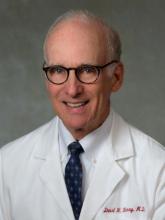In this episode, Gary H. Lyman, MD (https://bitly.is/2UJzUly) joins David Henry, MD, (http://bit.ly/2MFDfzm) to talk about biosimilars.
Dr. Lyman talks about the definition of biosimilars, how they are made, which are approved, and which ones are on the market.
He also talks about extrapolation and interchangeability as well as where some biosimilars stand in both ASCO and NCCN guidelines for patients who are going into supportive care.
And Ilana Yurkiewicz, MD (https://stanford.io/2RXPixR), talks about what the word "cure" means to you compared to what it means to patients in a world with OS, PFS, DFS, CR, etc. (26:35).
Show Notes
By Hitomi Hosoya, MD, PhD
- Biosimilars are biologic products that are highly similar to the reference products with no clinically meaningful difference in terms of safety, efficacy, purity, and potency.
- Unlike “generic” products, biosimilars are produced in living systems, therefore they cannot be replicated identically.
- The Food and Drug Administration encourages companies to produce biosimilars as a patent expires on the original product.
- For approval, the FDA requires largely preclinical data; amino acid sequence and molecular structures, pharmacodynamics and pharmacokinetic data in animal models and humans. Also, no greater immunogenicity should be demonstrated.
- Large randomized trials are not usually required for approval of biosimilars as there is already data on the original product. Post-marketing surveillance is important.
- 14 biosimilars have already been approved by the FDA.
- Interchangeable designation of biosimilars is yet to come.
- At this early stage of biosimilar marketing, we see a 10%-11% cost reduction. This is expected to increase as the market expands.
References:
JAMA Oncol.2018 Feb 1;4(2):241-247
Contact us: podcasts@mdedge.com
MDedge Hematology/Oncology Twitter: @MDedgeHemOnc
Ilana Yurkiewicz Twitter: @ilanayurkiewicz

